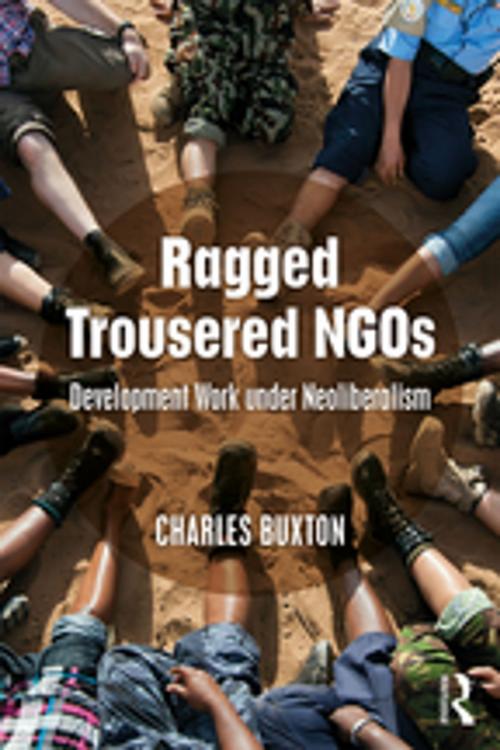Ragged Trousered NGOs
Development Work under Neoliberalism
Nonfiction, Social & Cultural Studies, Political Science, Social Science| Author: | Charles Buxton | ISBN: | 9780429648991 |
| Publisher: | Taylor and Francis | Publication: | May 17, 2019 |
| Imprint: | Routledge | Language: | English |
| Author: | Charles Buxton |
| ISBN: | 9780429648991 |
| Publisher: | Taylor and Francis |
| Publication: | May 17, 2019 |
| Imprint: | Routledge |
| Language: | English |
Ragged Trousered NGOs is a compelling first-hand account of the NGO sector and wider civil society over the past 40 years, examining how and why people take collective action and engage in social development projects. The book explores different organisational and methodological aspects of NGO work and social action, asking what was possible to achieve at a grass-roots level at different times, in different economic and political contexts in the East and West. Adopting a critical perspective, the author argues that social action continues to play a vital and varied role, and yet it struggles to challenge deep-rooted power relations and traditional forms of behaviour in today's unequal world.
In particular, the book draws on examples from the former Soviet Union in transition, and the UK's voluntary sector over the last 40 years, with a view to challenging Eurocentric views about organisations and communities. The analysis adopts a Gramscian view of hegemony and an internationalist and anti-war position on key issues arising in recent armed conflicts and the new cold war with Russia. The book concludes by addressing the challenges for development workers, noting the precarious nature of NGO work despite its many achievements, and suggesting ways in which social activists can pick up more strength and support.
This book's practical perspective on progressive forms of organisational management will be of considerable interest to civil society and NGO development workers, as well as to researchers and students in the fields of international development, politics, sociology and regional studies.
Ragged Trousered NGOs is a compelling first-hand account of the NGO sector and wider civil society over the past 40 years, examining how and why people take collective action and engage in social development projects. The book explores different organisational and methodological aspects of NGO work and social action, asking what was possible to achieve at a grass-roots level at different times, in different economic and political contexts in the East and West. Adopting a critical perspective, the author argues that social action continues to play a vital and varied role, and yet it struggles to challenge deep-rooted power relations and traditional forms of behaviour in today's unequal world.
In particular, the book draws on examples from the former Soviet Union in transition, and the UK's voluntary sector over the last 40 years, with a view to challenging Eurocentric views about organisations and communities. The analysis adopts a Gramscian view of hegemony and an internationalist and anti-war position on key issues arising in recent armed conflicts and the new cold war with Russia. The book concludes by addressing the challenges for development workers, noting the precarious nature of NGO work despite its many achievements, and suggesting ways in which social activists can pick up more strength and support.
This book's practical perspective on progressive forms of organisational management will be of considerable interest to civil society and NGO development workers, as well as to researchers and students in the fields of international development, politics, sociology and regional studies.















